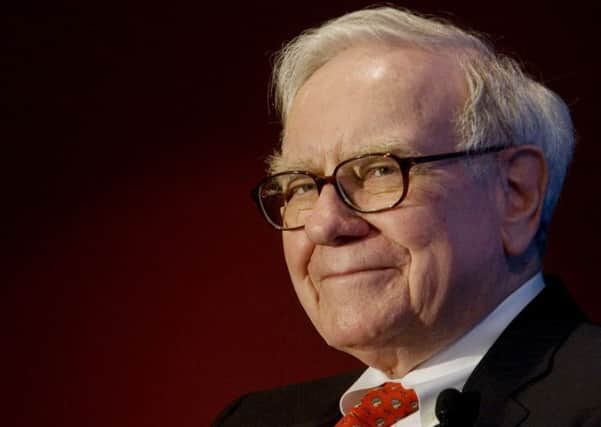£90m the value of a company’s good reputation


We have seen many instances of people or companies that we have admired suddenly fall over and be tarnished for a long time by one false step. VW is one of the most recent, but many of us remember horse-burgers, exploding mineral water bottles, and anti-freeze in German wine.
It takes a long time for companies to recover from such events. Some Cabinet ministers and other people in the limelight never recover.
Advertisement
Hide AdAdvertisement
Hide AdSo how much is one’s good name worth? Well, in our latest QCA/BDO Small and Mid-Cap Sentiment Index we asked about corporate reputation and received some very interesting views. We asked companies and their advisers what percentage of their market value they ascribe to reputation.
The answer is 28 per cent.
The companies and advisers believe that 28 per cent of their market value is accounted for by reputation. Based on the value of all the securities on the London Stock Exchange (excluding debt) at the end of August the market’s capital value is £6.1 trillion. Extrapolating the view that 28 per cent of a company’s value is accounted for by reputation, this means that the corporate reputation of UK Listed PLC is £1.7
trillion. Imagine that amount laid out on a table.
Put another way, the average small-cap on the main market of the London Stock Exchange has a market capitalisation of £336m; so, on average, its reputation is valued around £90m. On the other hand, the average AIM company could see its market value drop by £19m as a result of a serious
reputational issue. The impact of that on the directors’ remuneration and bonus package would be significant.
Advertisement
Hide AdAdvertisement
Hide AdThese are not small figures; yet, nearly a quarter of companies tell us that they have no concrete plans to deal with such issues, wherever they come from. The advisers to these companies believe that a staggering 41 per cent of their clients are ill prepared for such an eventuality. If these advisers are right, then a huge number of companies are kidding themselves about their readiness.
31 per cent of small and mid-cap quoted companies claim to have been victims of allegations or rumours being made about them on the internet. Out of those 39 companies that were victims, almost half (48 per cent) ignored the allegation or rumour and just over a third (35 per cent) are uncertain as to what impact their response had on stopping the rumours and helping to rectify the situation.
When asked what happened next, 46 per cent of these companies said that their action (or inaction) rectified the situation, whilst 53 per cent said that it either had no effect (18 per cent) or they were uncertain as to what effect it had had (35 per cent). This is a confused position to end up in for many companies.
So, the value of reputation is very high and yet the actions to prevent or deal with reputational issues are not very well thought through or implemented. Given the rapid development of social media technologies, this issue is going to become more and more difficult to deal with.
Advertisement
Hide AdAdvertisement
Hide AdManaging corporate reputation is tricky, but basically it all comes down to building trust with your stakeholders. Corporate governance and corporate reputation go hand-in-hand. It is very difficult to create a relationship in the middle of a crisis, far better to have established a trusting relationship many years before.
Give that the corporate reputation of all quoted companies is valued at approximately £1.7 trillion, it is worth protecting in order to ensure further growth.
For those companies that have no plans to manage their corporate reputation, hopefully this is a wake-up call of what is at stake.
As that famously successful investor, Warren Buffet, has said: “It takes 20 years to build a reputation and five minutes to ruin it. If you think about that, you’ll do things differently.”
Advertisement
Hide AdAdvertisement
Hide AdIf you think about the possibility of losing up to £19m as an AIM company, up to £90m as a small listed cap or £1.7 trillion on the market as a whole in the UK, then perhaps you’ll do things differently.
Issue 15 of QCA/BDO PULSE is available at: www.theqca.com/qcabdopulseissue15